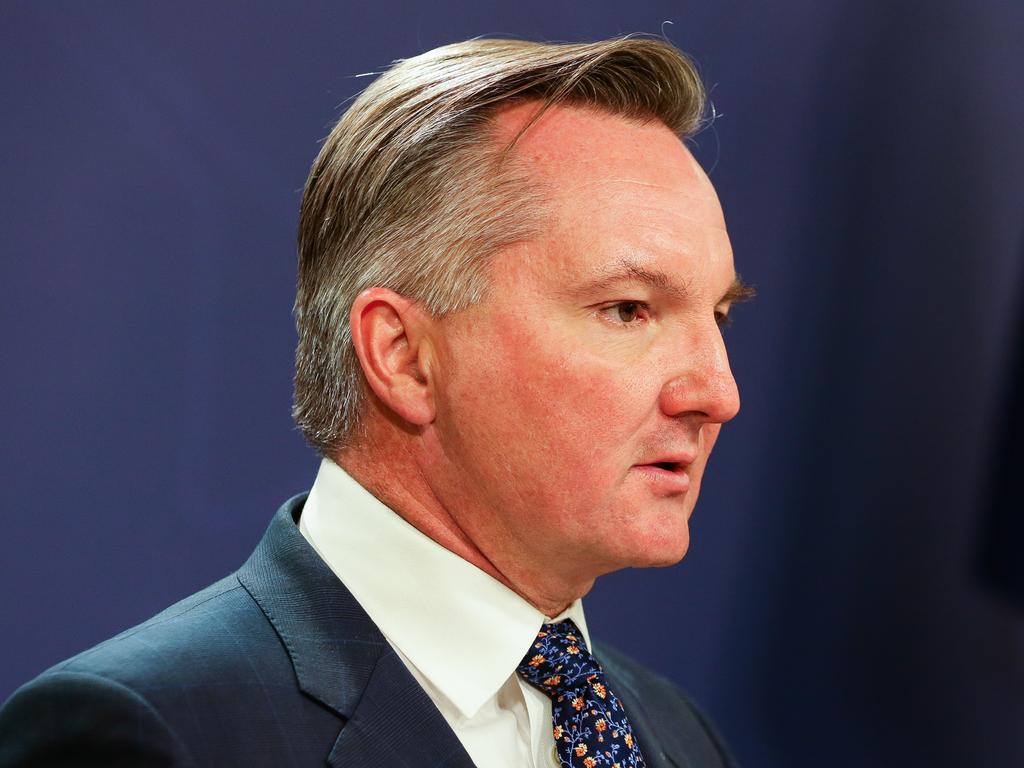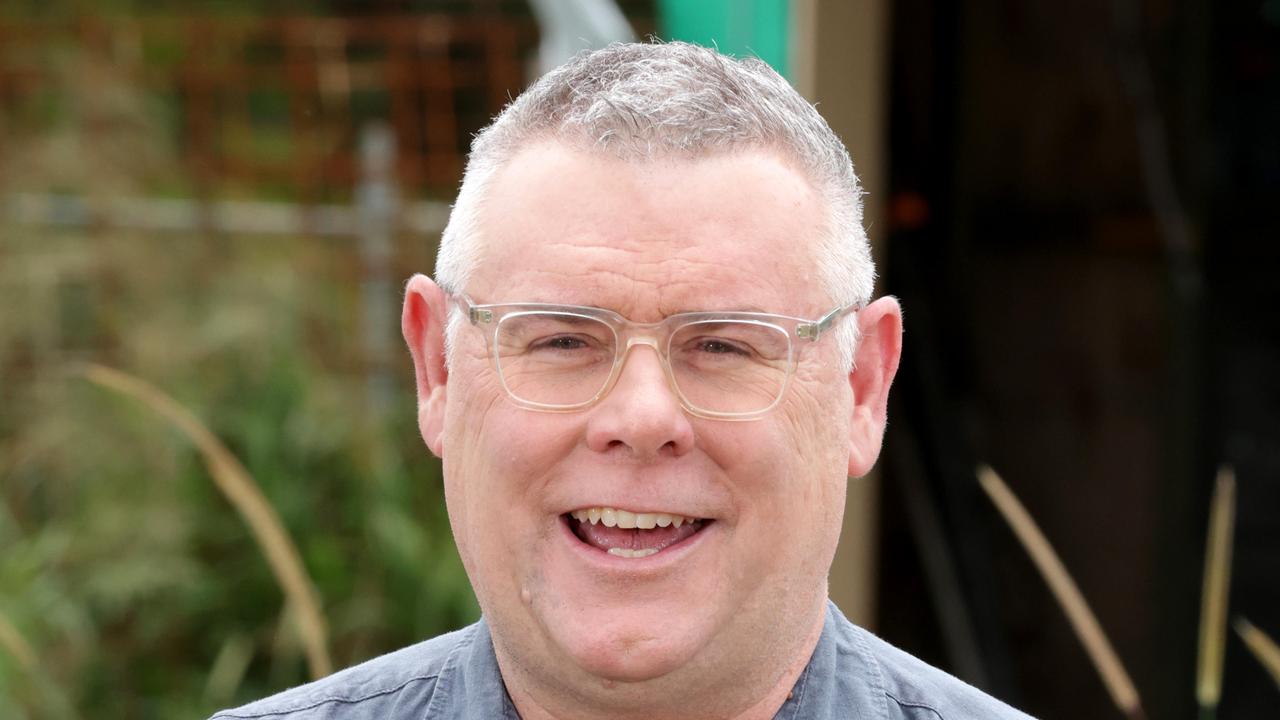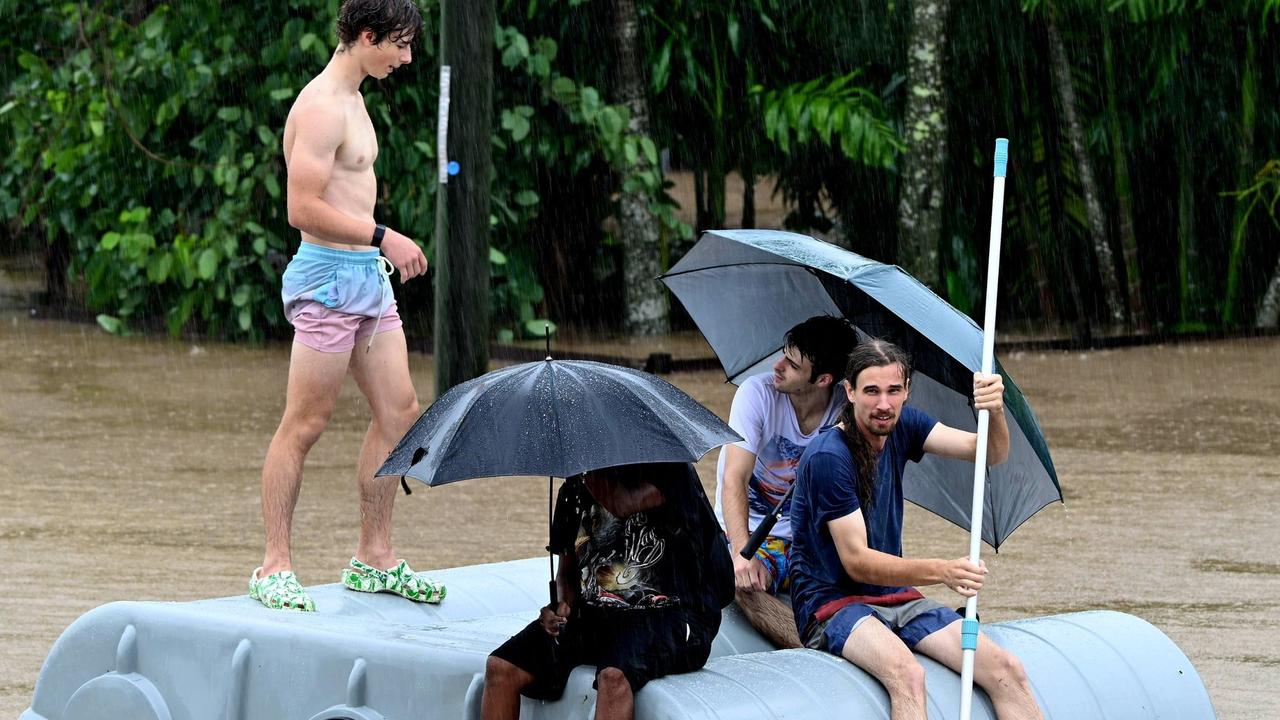Coronavirus Australia live news: Three cases linked to Melbourne’s Holiday Inn
Another virus case has been linked to Melbourne’s Holiday Inn just hours after the infection of a returned traveller was announced.
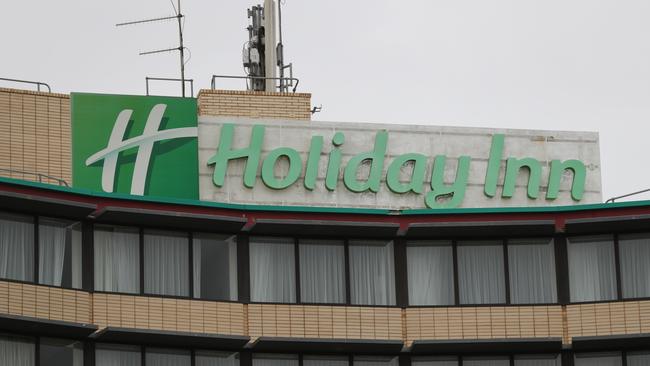
- ‘High standards’: Andrews reason for low caps
- WHO warns against dismissing AstraZeneca jab
- Nick Scali backflips on JobKeeper
- Hardship scheme $36bn hit to super
- New Covid case linked to the Holiday Inn
- Another two cases linked to the Holiday Inn
Welcome to The Australian’s rolling coverage of the ongoing coronavirus pandemic.
This afternoon another two case of Covid-19 in Victoria have been linked to the hotel quarantine facility, the Holiday Inn, after a worker at the hotel tested positive earlier in the week.
Victorian Premier Daniel Andrews has declared his state will never take as many overseas return travellers as NSW, because his state has “higher standards” in hotel quarantine than its northern neighbour.
NSW has also gone another day with zero local coronavirus cases.
Ellie Dudley 10.15pm: New Victorian exposure sites list
Victorian health authorities have updated the list of potential exposure sites after two new cases were linkled to the Holiday Inn at Melbourne Airport on Tuesday.
Anyone who attended the following venues at the stipulated times must immediately isolate, get tested and remain isolated for 14 days.
Friday, February 5
● PJ’s Pet Warehouse, Sunbury, from 3.37pm to 4.10pm
● Bakers Delight, Sunbury Square Shopping Centre, Sunbury, from 3.40pm to 4.15pm
● Aldente Deli, Sunbury Square Shopping Centre, Sunbury, from 3.45pm to 4.23pm
● Sushi Sushi - Sunbury Square Shopping Centre, Sunbury, from 3.53pm to 4.28pm
● Asian Star, Sunbury Square Shopping Centre, Sunbury, from 3.57pm to 4.30pm
Saturday, February 6
● Sunny Life Massage, Sunbury Square Shopping Centre, Sunbury, from 4.30pm to 6.30pm
● Cellarbrations, Sunbury, from 6.17pm to 7.02pm
Sunday, February 7
● Cellarbrations, Sunbury, from 5.44pm to 6.19pm
Ellie Dudley 9.35pm: WHO finds ‘natural reservoir’ of Covid in Wuhan
Evidence pointed to a “natural reservoir” of coronavirus in the bat population in Wuhan as the origin of the pandemic, a member of the the World Health Organisation probe says.
The WHO investigations team “don’t know the exact role” of Wuhan’s Huanan market in the spread of the coronavirus.
“We know there was spread among people who were and lived and worked at the market through December. How it was introduced is still unknown,” Dr Peter Ben Embarek said on Tuesday night.
“The market probably was a setting where the spread could happen easily, but that’s not the whole story.”
Some of the first cases - that developed symptoms in the first two weeks of December - can be linked to the Huanan market, but Dr Embarek said the team “can’t go into more details of the information we have looked at.”
He added: “We have found evidence of a wider circulation of the virus in December 2019. It was not only the cluster of the Huanan market, but it was also circulated outside of the market,” Dr Peter Ben Embarek said on Tuesday night.
“The picture we see is a very classic picture of an emerging virus. We start with a few sporadic cases early on in the month of December and then we see small outbreaks where the disease starts to spread in clusters.”
“When mapping all the initial cases over time throughout December ... combining that with genetic sequences of some of the cases we could see that picture becoming more and more clear of a spread within the market and spread outside the market — initially with very few cases, then more and more cases as we moved into January 2020.”
“We did not find evidence of large outbreaks that could be related to COVID-19 prior to December 2019.”
Dr Embarek said the research continued to point towards a “natural reservoir” of the virus in the bat population. However, since Wuhan is not a city close to a bat environment, a direct jump from bats to the city was “not very likely.”
“Therefore, we have tried to understand what other animal species come in and out of the city that could have introduced the virus, in particular, in the Huanan market,” he said.
As the research for the root of the virus is still a “work in progress”, Dr Embarek said the team then “looked at all the possible pathways of all the ways the virus could get into the human population”.
The team identified four main hypotheses. The first was a direct zoonotic spillover, meaning direct transmission from an animal reservoir or species to humans.
The second hypothesis was the introduction of the virus in an intermediary species, potentially closer to humans where the virus could circulate between animals and then infect people as well.
The third one was the food chain, in particular meaning frozen products acting as a surface acting as a host for the virus.
The last one was the possibility of a laboratory related incident.
Dr Embarek said their initial research has found the second hypothesis was the most likely.
READ MORE: New COVID-19 infections defy Daniel Andrews’ standards boast
Natasha Robinson 9.20pm: Why didn’t others get hotel virus?
It’s the big question around Australia’s recent infections of workers who acquired coronavirus from hotel quarantine: why did they not pass it on to anyone else, despite all being infected with the highly contagious UK strain?
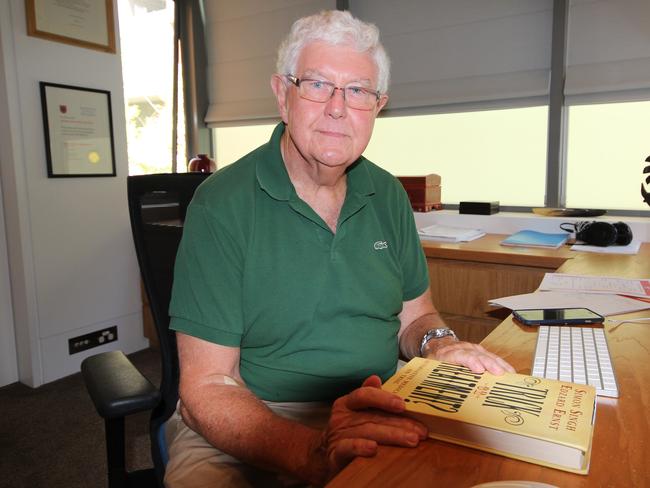
In the three incidents in which the virus escaped hotel quarantine — first in Brisbane, then in Perth and then Melbourne — each infected patient did not pass the virus on to anyone at all.
Lockdowns were ordered in Brisbane and Perth, but the virus did not spread to a single person in the community.
Perhaps it was just good luck, but there could be a medical explanation. Immunologist John Dwyer, an emeritus professor at the University of NSW, has one theory. “It’s possible these workers got infected by people who are close to the end of their course with COVID-19, a person who was shedding the virus but not in an infectious form,” he says.
“In that case, you would still be able to contract the virus, but not to pass it on because it’s a non-viable virus. You could pick up remnants of the virus but it wouldn’t be in a form that’s going to cause any disease or multiply in the person who is infected.”
Professor Dwyer says the PCR tests that diagnose COVID-19 are extremely sensitive and would give a positive result even if an infected person has contracted only remnants of the virus.
Ellie Dudley 8.55pm: WHO Wuhan probe ends
The World Health Organisation team tasked with finding the origins of COVID-19 has concluded the investigations in Wuhan, China.
At a press conference held in Wuhan on Tuesday, the team behind the WHO-convened Global Study of Origins of SARS-Cov 2 who arrived in Wuhan on January 14 said they had conducted “systematic and comprehensive research” in their investigation.
The multidisciplinary group was established in July last year with 17 Chinese experts and 10 international experts from the WHO.
The investigation was undertaken over 28 days and the group received detailed presentations of research, and undertook site visits to best understand the situation in China.
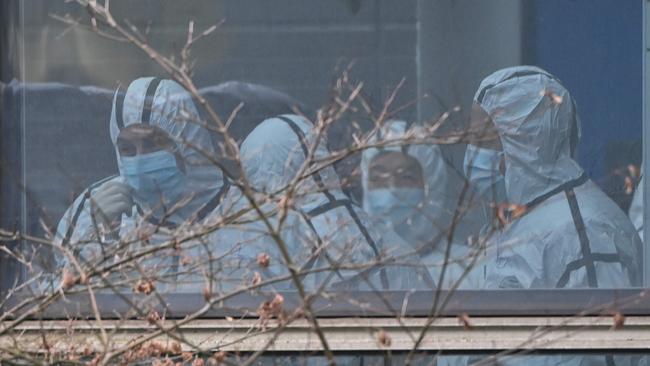
Professor Liang, the leader of the China section of the investigation, said that as most emergent viruses originate from animals, understanding the process requires a deep analysis on both the evolution and diversity of viruses and the transmission of viruses from animals to humans and from humans to other humans.
Evidence from surveys conducted by the team found that bats and pangolins may be a “reservoir” for COVID-19, however Professor Liang said the viruses identified so far from neither of these species is similar enough to serve as the direct origin.
Minks and cats were also identified as potential reservoirs, however he said research proving this is “undersampled” and “not adequate enough.”
Professor Liang said surveillance data in Wuhan from July-December 2019 proved there was no transmission of SARS-Cov 2 in Wuhan before December 2019.
However, there could have been unreported circulation of coronavirus in other regions before Wuhan.
He said early circulation of SARS-Cov-2 preceded the initial detection of cases by several weeks, according to a literature review undertaken by the investigations team.
Professor Liang said that while the majority of cases during the “substantial transmission” period in Wuhan in December 2019 could be traced to one seafood market in the city, transmission was also occurring elsewhere.
“While some of the early cases had an association with the Huanan seafood market, others were associated with another market and some no market at all,” he said.
It is not possible to understand how the virus was introduced to the market, Professor Liang said.
Professor Liang said the virus is able to survive in very low temperatures and damp environments, adding it is possible the virus originated in a cold product at the Huanan market.
READ MORE: High-risk factors in fatal COVID-19 cases identified
Agencies 8.30pm: Mandatory Covid tests in quarantine for UK arrivals
Travellers arriving in Britain from abroad will have to take two coronavirus tests during quarantine, the government is expected to confirm on Tuesday, local time.
Health Secretary Matt Hancock is due to announce that people told to isolate at home will be required to get a test two and eight days into a mandatory 10-day quarantine period.
The new measures, which critics say come too late to curb the spread of the virus, are aimed at halting new variants.
But the health ministry said Britain’s response had been informed by experts leading to “some of the toughest border regimes in the world”.
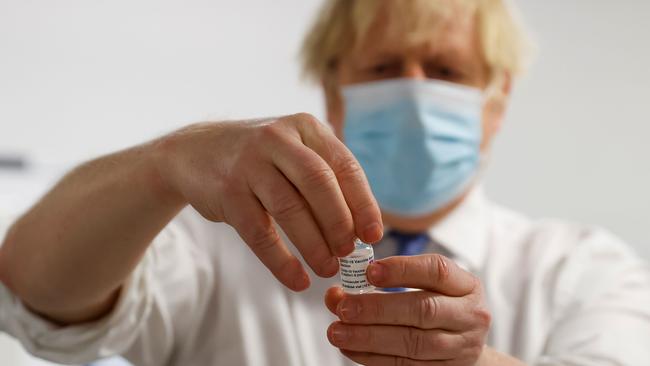
“Enhancing our testing regime to cover all arrivals while they isolate will provide a further level of protection and enable us to better track any new cases which might be brought into the country, and give us even more opportunities to detect new variants,” a spokesman said.
Environment Secretary George Eustice confirmed that announcements on the new quarantine regime would be made in parliament later on Tuesday.
“We have to be ever mindful of the risk of other variants entering the country,” he told BBC radio.
Prime Minister Boris Johnson’s government has been under pressure to tighten rules for international travellers, following criticism the regime was too lax.
New mandatory hotel quarantine rules for travellers returning from dozens of countries deemed “high risk” from Covid-19 are due to start from February 15.
The new rules will require all UK citizens and permanent residents returning from countries on a travel ban list to self-isolate in a government-approved facility for 10 days.
Other visitors from the 33 countries currently on the list, which includes all South American nations and South Africa, are currently barred from visiting Britain under virus lockdown rules.
READ MORE: Stranded crew relieved after a year
Ellie Dudley 7.40pm: Focus on countries that need vaccine most
The World Health Organisation will push vaccines to countries that need it most.
“Right now, however, we don’t have that luxury,” Dr Richard Hatchett said in Geneva on Tuesday night
Dr Hatchett also said suppliers are “working rapidly” to develop new vaccines that are specific to the emerging strains.
“We are looking at second generation vaccines which will have broader protection,” he said. “There is a staged approach to the necessary research and development,”
Dr Bruce Aylward said the WHO is doing “everything possible” to make sure the COVID-19 vaccines rolled out through the COVAX facility are sent out quickly, but that they are “safe, efficacious and quality-assured”.
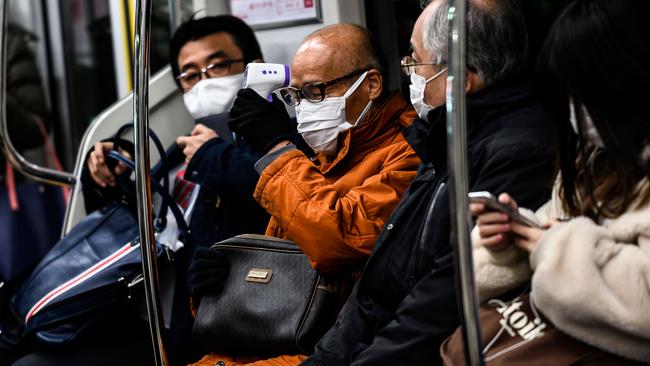
He highlighted a four-part approach to making sure this happens.
Firstly, the WHO body Vaccines Global Access (COVAX) is trying to ensure the products contracted are safe. The AstraZeneca vaccine is the primary supplier but Dr Aylward said more, including Pfizer, are in the process of being approved.
Secondly, COVAX are working to expand the portfolio of vaccines.
Next, they are looking to establish their capacity to take donations and doses from countries who “feel they are in the position” to be sharing doses.
And lastly, COVAX is trying to access other potential suppliers, including the Chinese-manufactured Sinovac and Sinopharm vaccines.
Dr Aylward also said COVAX is contacting countries with indicative volumes of vaccines to tell them the numbers of doses they will be receiving so they can prepare their inoculation timelines appropriately.
READ MORE: Hardship scheme a $36bn hit to superannuation
Victoria Laurie 7.30pm: Quarantined man fined for 100km drive
A Perth man has been fined $10,000 for driving 100km to see a relative despite being told to go into quarantine for 14 days.
He was convicted of three breaches of quarantine laws.
The 51-year-old man had flown to Perth from Brisbane on January 7. He was informed the next day that following a COVID-19 outbreak in Queensland, anyone who had arrived in Western Australia from Queensland since January 2 was required to self-quarantine.
The man nominated an address in the Perth northern suburb of Merriwa, and was told to stay there until January 21.
A week into his quarantine period, he twice drove with a family member to local shops and then made a trip to visit another relative over 100km away. He did not wear a mask at any stage.
He was charged with three counts of Fail to Comply with a Direction, fined $10,000 and ordered to pay costs.
READ MORE: Minister stands by vaccine strategy
Ellie Dudley 7.15pm: Vaccine data key to fighting pandemic
The next challenge in the fight against the pandemic is an “urgent” need for data on vaccines, the WHO says.
“We’ll make recommendations based on the available evidence, but of course these can be updated,” the World Health Organisation’s Soumya Swaminathan said on Tuesday.
“Countries of course will make their own decisions based on additional evidence they may have
“There is an urgent need to collect more information and data
“We would like to promote that type of good research, whether it’s trials or educational studies, and have a global database where we keep learning so we can use these vaccines more effectively.
“The next few months will be important as we keep learning and adapting our strategies.”
COVAX has set aside US$140m to support “necessary studies” on how to best use the vaccines.
Dr Maria Van Kerkhove said “many studies” were underway to learn more about the virus in “real time”.
“While we don’t have all of the answers — we never will — we have systems in place to make sure there’s data sharing, that there’s surveillance that there’s a mechanism with which these results can be shared,” she said.
“I do want to highlight again that we shouldn’t stigmatise anyone with SARS-Cov 2, we need to understand we are in this together.”
READ MORE: Anthrax in fridge, vials of plague; inside Porton Down
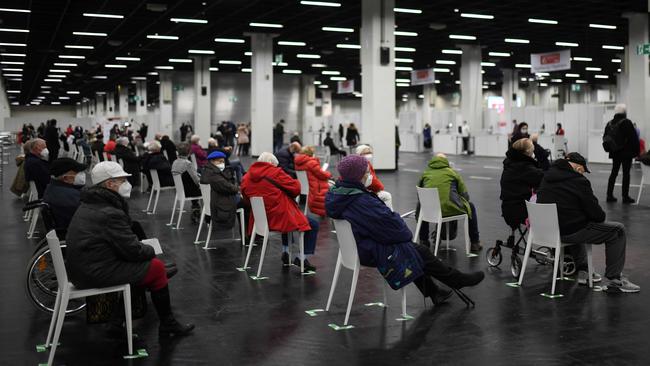
Ellie Dudley 7pm: WHO targets new variants
The World Health Organisation says frameworks to combat new variants of COVID-19 are constantly being updated to stop the spread of the virus.
“The strategy is developing over time and getting stronger over time,” Dr Maria Van Kerkhove of the WHO said on Tuesday.
“We’re not starting from scratch, we require a robust framework to determine these mutations and variations and also to inform vaccine composition.”
“It will become stronger as the month goes on, and it requires the help and assistance from epidemiological experts all the way to vaccine manufacturers.”
Dr Michael Ryan said the WHO tracks how the flu mutates from year to year to update the flu vaccine, and will take the same approach for the coronavirus.
“We track the epidemiology of the virus and we track their genetic sequences,” he said.
“Each year we can give a clear explanation to manufacturers on how to adapt the vaccine.”
“I believe we can track this virus.”
Dr Seth Berkley of the WHO said that while the AstraZeneca and Pfizer vaccines are leading the inoculation charge, the world will shortly see more vaccines rolled out.
“One of the things we will be looking at is whether the vaccines need to be adjusted in the way they are being used or the actual makeup of the vaccine.
“We will be continuing to act as COVAX to work out what is the best way forward,” he said.
READ MORE: As vaccines raise hope, cold reality dawns: Covid here to stay
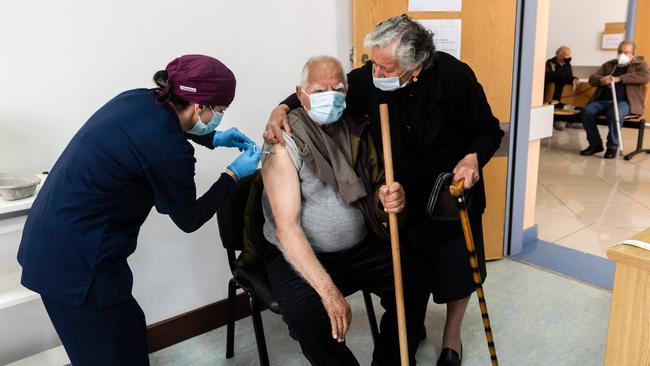
Wayne Smith 6.45pm: Brush with virus could spell end of Olympic dream
Australia’s Tokyo Games chef de mission Ian Chesterman is making a tour of the country talking to confirmed and likely Olympic athletes and warning then bluntly that there is “no absolute safety net” that will guarantee their participation at the Games.
In recent days, Chesterman has addressed the sprint kayaking team – which has been selected – and the swimming squad assembled on the Gold Coast ahead of the Olympic trials in Adelaide in June.
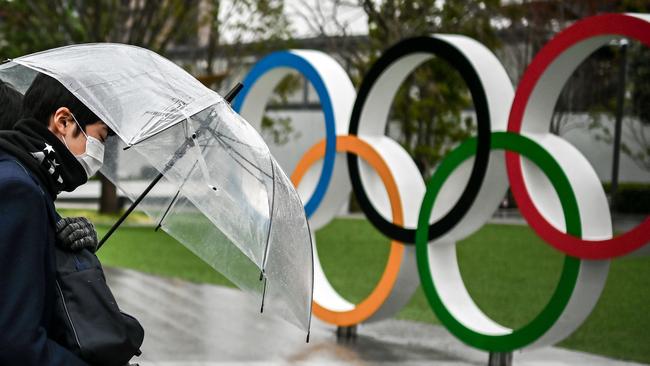
Within the limits of what has already been decided, he told them that nothing can be guaranteed in the midst of a global pandemic. Even if the Games go ahead, there could be circumstances which might prevent individuals from competing.
What would happen, for example, if it was established they had shared an adjoining lane in training with an athlete who tested positive for Covid? Might they be forced to enter two weeks of quarantine, which in the context of a 16-day Games would mean the end of their Olympic dream?
“I’ve not said anything as black and white as that but in my communication to athletes only yesterday, I’ve made sure they see the line in the (IOC’s Athletes) Playbook that says there’s no absolute safety net that can be provided that something won’t go wrong,” Chesterman said on Tuesday while attending an informal intra-squad Dolphins swim meet at the Bond University pool. “I’ve ensured they are fully aware of the environment they are going into and the ramifications that might be there.
READ the full story here.
Tim Dodd 5.45pm: La Trobe Uni abandons plan to scrap Hindi course
La Trobe University has abandoned its plan to stop teaching Hindi following a major community campaign to save the language program, which was threatened by COVID-19 cost cuts.
The university said last November that three language courses with low enrolments — Hindi, Indonesian and modern Greek — could be shut down to help offset the loss of international student income.
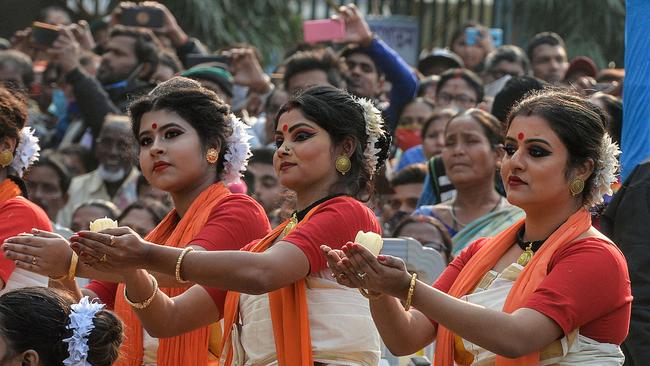
La Trobe is one of only two universities in Australia which teaches Hindi — the most widely spoken language in India — and the plan to close the program sparked a backlash, particularly as La Trobe enrols many Indian students and has often showcased its cultural links with India.
Nearly 2500 people signed a change.org petition which said the proposal “could deliver a serious blow to India studies in Australia, and also greatly damage the reputation of the university among the Indian community, a vast majority of whom speak Hindi”.
READ the full story here.
Ellie Dudley 4.50pm: Three cases now linked to Melbourne hotel
Another positive coronavirus case has been linked to the Holiday Inn just hours after the infection of a returned traveller was announced, taking the total number of cases to three.
All primary close contacts will have to isolate for another 14 days, after just completing their two week stay in hotel quarantine.
Those who must quarantine include residents on the same floor who completed their quarantine on February 7 and any workers who were there during the same period.
Victorian Health Minister Martin Foley said while “it will come as difficult news” for those who have to isolate again, it “is a necessary public health move.”
The new case comes just an hour after a positive case was found at the same hotel quarantine facility.
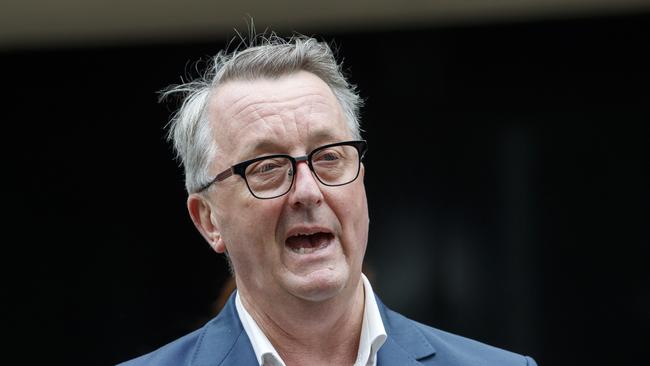
The food and beverage worker at the Holiday Inn tested positive in the last few hours, who had been at the hotel in the same exposure period as the most recent case.
Mr Foley said while it is “early days”, it seems as if both cases were on the same floor.
“This information has just come to hand on the way here. We will release further information in regards to that as soon as we can,” he said
Chief health officer Brett Sutton said the health authorities are acting quickly to identify any further transmission within the Holiday Inn.
“It is a low risk of transmission as the residents were all in individual rooms, however, as there is a case that has emerged already we really need to consider everyone who is on that floor at greater risk,” he said.
Ellie Dudley 4.09pm: New case in Victoria linked to Holiday Inn
Victorian health authorities have reported another COVID-19 case, in a resident of the Hotel Quarantine facility at Holiday Inn, Melbourne Airport, who has tested positive after completing their 14-day quarantine.
The Department of Health says interviews with the individual are underway.
Early indications are that the individual has not left her home since exiting hotel quarantine on February 7, other than to obtain a test in a COVID-safe setting.
Victorian Health Minister Martin Foley and chief health officer Brett Sutton are speaking at a press conference now.
READ MORE: Social distancing slays the giant dragon
RICHARD FERGUSON 3.15pm: Virus, climate action drive ACT into $603m defecit
Coronavirus and climate action have driven Canberra’s territorial budget towards a $603m deficit this year, but ACT chief minister Andrew Barr says there will be a $500m recovery is COVID stays dormant and state borders remain largely open for the rest of the year.
The ACT’s long-delayed 2020-21 budget shows government expenditure is up $232m on the previous year and will only continue to grow in the next four years, but strong growth and taxes will see Canberra recoup as much as $200m in the next year alone.
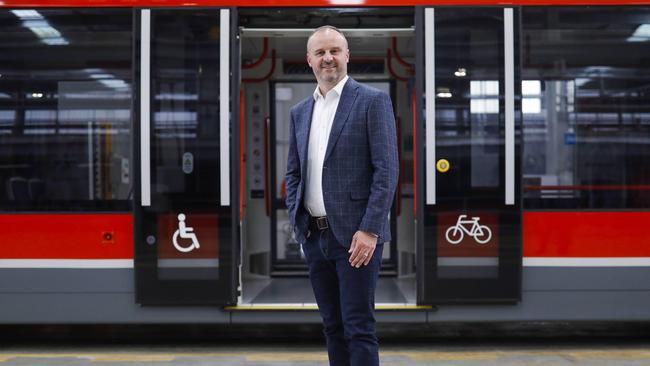
In his budget speech to the ACT parliament, Mr Barr said Canberra will see an average growth rate of 2.7 per cent in the next four years, putting it in as good a fiscal position as any other state or territory recovering from the pandemic.
“The ACT’s fiscal position has improved by around $500 million over the coming four years, including a $300 million improvement in this fiscal year,” he said.
“We also forecast economic growth at an average of 2.7 per cent a year over the next four
years, reflecting our jurisdiction’s strong economic position.
“The latest data shows that the ACT’s strong response to the pandemic, our success
in controlling the virus, and the delivery of significant fiscal support where needed, has
resulted in a strong recovery in the labour market, with employment growth even higher
than expected.
“Employment growth is now forecast to continue across the Budget and forward estimates at
an average of 1.7 per cent.”
The ACT’s COVID response is still expected to cost $51.5m over the next two years, but is projected to end by 2022/23.
Read the full story here.
Ben Wilmot 2.49pm: Office giant calls for open borders for bounce back
The country‘s largest listed office owner Dexus has called on governments to keep state borders open to help business bounce back from the coronavirus crisis and says that corporate Australia returning to offices.
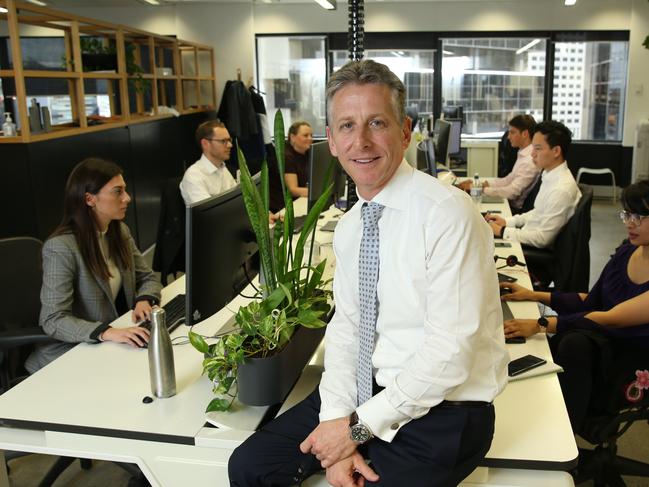
Delivering a healthy half year result the company acknowledged that the companies had changed the way they were working but insisted that they still needed offices.
Dexus chief executive Darren Steinberg renewed calls to keep internal borders open to enable commerce to get fully underway this year.
“It is critical now that state governments come together and do their absolute best to keep borders open,” he said. ”It is now imperative that Australia keeps internal borders open so business can plan with some certainty.”
READ MORE: Hybrid office a ‘dangerous’ model for companies
Rachel Baxendale 2.32pm: Cake shop learned of Covid exposure via media
Victorian Premier Daniel Andrews says health authorities need to alert the greatest number of affected people about coronavirus exposure sites as rapidly as possible, even if that means owners of affected businesses learn of the news through the media.
Staff at Marciano’s cake shop in Maidstone, in Melbourne’s west, learned through the media on Monday morning that their business had been listed as an exposure site at 1am, after a hotel quarantine worker who tested positive for coronavirus on Sunday visited the shop on Friday.
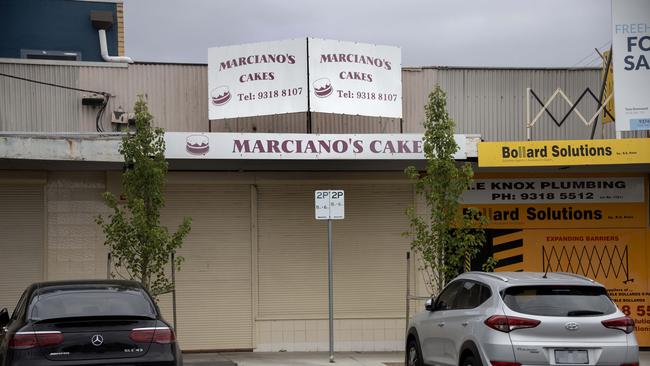
Mr Andrews said on Tuesday he was not across the details of the cake shop’s situation.
“But if we’re faced with a choice between, we know this is an exposure site, and let’s get information out quickly to everybody who’s been here, but we can’t get on to the owner, because for whatever reason, we will always choose the greatest good for the greatest number, the greatest protection for the greatest number,” he said.
“That’s an important part of this. I would just say to that particular business owner, every effort is made.
“We are always looking to improve, and I’m sure that public health will look at that and if there’s anything I can add to that I’m more than happy to come back to you.”
READ MORE: Victoria’s new-found pragmatism
Rhiannon Down 2.20pm: Queenslanders on alert as virus fragments detected
Queensland has recorded another day of zero cases of COVID-19.
There remains just five active cases in the sunshine state just weeks after Brisbane was placed into a snap lockdown after a hotel quarantine infection scare.
Coronavirus (#COVID19) case update 09/02
— Queensland Health (@qldhealthnews) February 9, 2021
Detailed information about COVID-19 cases in QLD can be found here: https://t.co/kapyXpSIAP pic.twitter.com/mN2qOiUwpd
Health authorities were placed on high alert after fragments of the virus were detected in Pimpama, Coombabah, Merrimac and Loganholme sewage catchments.
Any residents of the Gold Coast and neighbouring Logan areas have been urged to monitor for symptoms and get tested even if they experience only mild symptoms.
READ MORE: Packer awaits Crown Barangaroo fate
Rachel Baxendale 2.15pm: Gatherings, mask rules to remain in Victoria
Victorian Premier Daniel Andrews says household gathering limits and mandatory wearing of masks indoors will remain in place until health authorities can be certain that the state’s recent outbreaks in hotel quarantine workers are contained.
“I think 15 to the home is here for a little bit, until we run these outbreaks to ground,” Mr Andrews said.
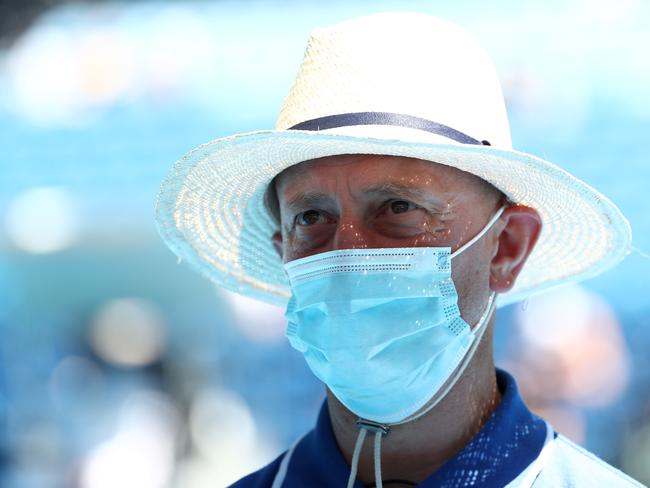
He said it was of “significant concern” to the government that the most recent hotel quarantine worker to become infected had not been found to have been involved in any “obvious infection prevention and control breach”, and infections may be possible more than 14 days after exposure with the UK and South African virus strains.
“I think masks inside, and masks in lots of different settings have served a very valuable purpose, and I know that it’s not pleasant, particularly if the weather is warmer,” Mr Andrews said, going on to compare Victoria with other states which have had less strict mask requirements.
“I think there’s been a few outbreaks around the country where first ministers would have, when informed, would have been very pleased to have known — they didn’t of course because they weren’t wearing masks — to have known that as people were in shopping centres they had masks on, so I’m comfortable that that serves a purpose, and the reason I can say that is that’s the public health advice that’s the same doctors who saw us defeat the second wave, their advice in order to keep this at bay, is to have those settings in place.”
FOLLOW live updates from Day Two of the Australian Open
Rhiannon Down 2.09pm: UK virus cases decline by a quarter
Coronavirus case numbers are down one quarter in the UK compared to last week, suggesting a wave of infection that engulfed the country in crisis may have peaked.
There were 14,104 new cases in the past 24 hours, which was down 25.4 per cent. There were also 333 deaths, a 22 per cent fall in the seven-day total for the previous week.
The news comes as the NHS issued an urgent call for those over 70 to contact the NHS to receive the jab.
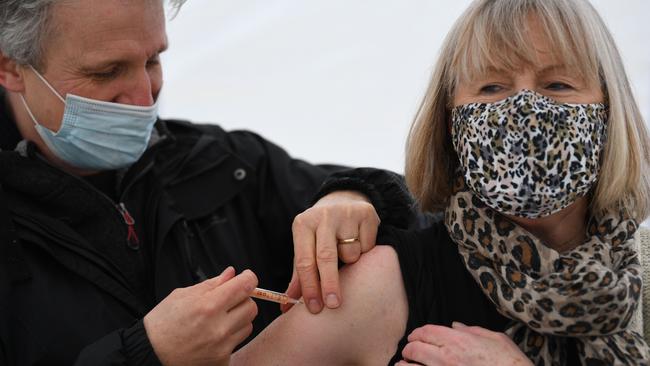
Deputy chief medical officer Jonathan Van-Tam responded to concerns the South African variant was resistant to the AstraZeneca vaccine, saying it was not the primary strain in circulation.
A study of more than 1500 people found that the jab may not be able to prevent mild and moderate illnesses caused by the mutant strain, according to reports. However, it was believed to offer a significant level of protection against serious illness and death.
Prof Van-Tam said the vaccine was believed to be effective against the strain in wide circulation.
READ MORE: Australian Open first night disastrous for Nine
Adeshola Ore 1.52pm: CMO weighs post-quarantine 16th day test
Chief Medical Officer Paul Kelly says the Australian Health Protection Principal Committee will consider a post hotel quarantine checkup on day 16, which has been adopted in NSW.
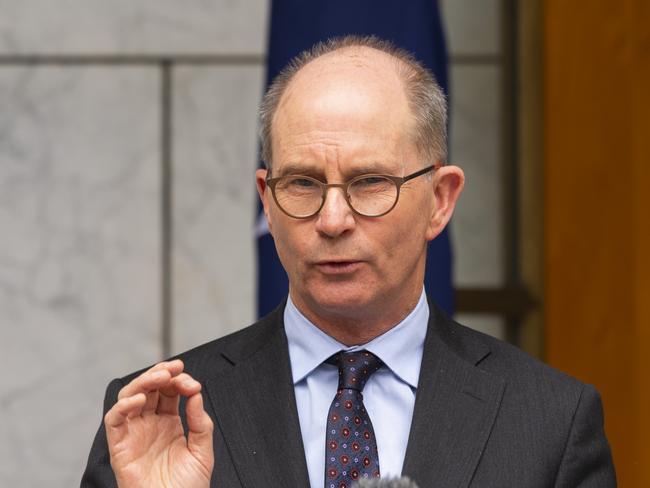
A Wollongong resident has tested positive to the virus on day 16 after spending two weeks in mandatory quarantine. NSW health authorities now call travellers two days after leaving hotel quarantine and encourage them to get tested.
“I’ve asked my New South Wales colleagues to give a proposal through to AHPPC and we will be looking at that later this week around that particular component but that is one of many things we are looking it,” Professor Kelly said.
Professor Kelly warned that Australia must be prepared for more cases of the highly contagious strains of COVID to enter the country, but says the nation’s hotel quarantine system is robust.
He said 87 samples of the UK variant and 18 samples of the South African variant had been detected in Australia’s hotel quarantine system.
“That is becoming the normal strain of the virus that is circulating around the world and we need to be prepared for those strains,” he said.
Professor Kelly said Australia’s vaccine roll out remained on schedule, despite EU threats to the country’s vaccine supplies.
“Our vaccine program (is) all completely on track, an enormous amount of work (has been) done across the Australian government with state and territory colleagues,” he said.
“With GPs, pharmacies and others that will be delivering these logistics, being worked through. Setting up our vaccine operations centre here in the health department to work through the scenarios of how we get those vaccines to where they need to be.”
He said the AstraZeneca vaccine was also working its way through the approval process and so far showed signs of being “very safe”. — With Rhiannon Down
Rhiannon Down 1.17pm: Top of Queensland jab queue told to expect contact
Queensland Health says it will begin contacting those at the front of the queue about receiving the COVID jab in a matter of weeks.
The health body said it was finalising the list of eligible Queenslander, which will include those over 80 years old and health workers under federal government guidelines.
📠People in Phase 1a will be notified by Queensland Health in the coming weeks about when and where you can receive your vaccine.
— Queensland Health (@qldhealthnews) February 9, 2021
📠The full list of Queenslanders who fit into Phase 1b will be available soon. 3/4
“People in Phase 1a will be notified by Queensland Health in the coming weeks about when and where you can receive your vaccine,” it said in a statement online.
“The full list of Queenslanders who fit into Phase 1b will be available soon.”
READ MORE: Palaszczuk cracks down on young criminals
Rhiannon Down 1.11pm: UK to segregate incoming ‘red list’ passengers
The UK is considering segrating travellers from “red list” countries on planes to prevent them from infecting other passengers before arrival.
The measures would support a new hotel quarantine system being put into place next week to stop the spread of new variants of COVID-19 from 33 red listed countries.
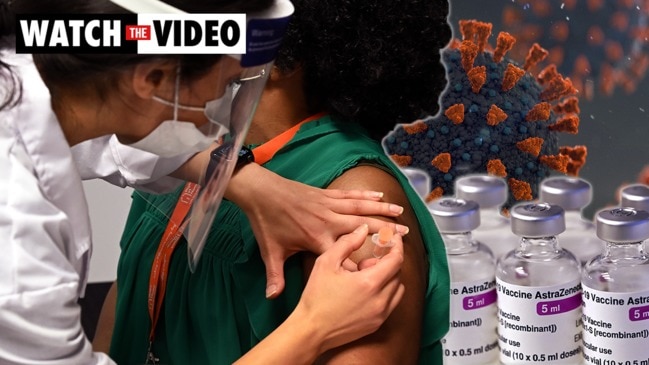
Some 1400 passengers from the red listed countries, which includes South America, Brazil and South Africa, would still be allowed to arrive a day under new caps.
The Home Office is expected to announce how the quarantine program will work today including pricing, booking systems and the number of rooms available.
READ MORE: Vaccine not the only thing Britain got right
Rachel Baxendale 1.02pm: Not boasting, it’s just fact, says Premier
Asked how he could say Victoria had “higher standards” than NSW, when NSW was taking more return travellers than Victoria, which has had three separate infections in hotel quarantine in the past week, Mr Andrews said: “Well I can say it because it’s true. And whether that’s convenient for people or not, is not really my concern.”
“There’s not 3500 private security working in our system. Do I need to go any further than that?” he said.
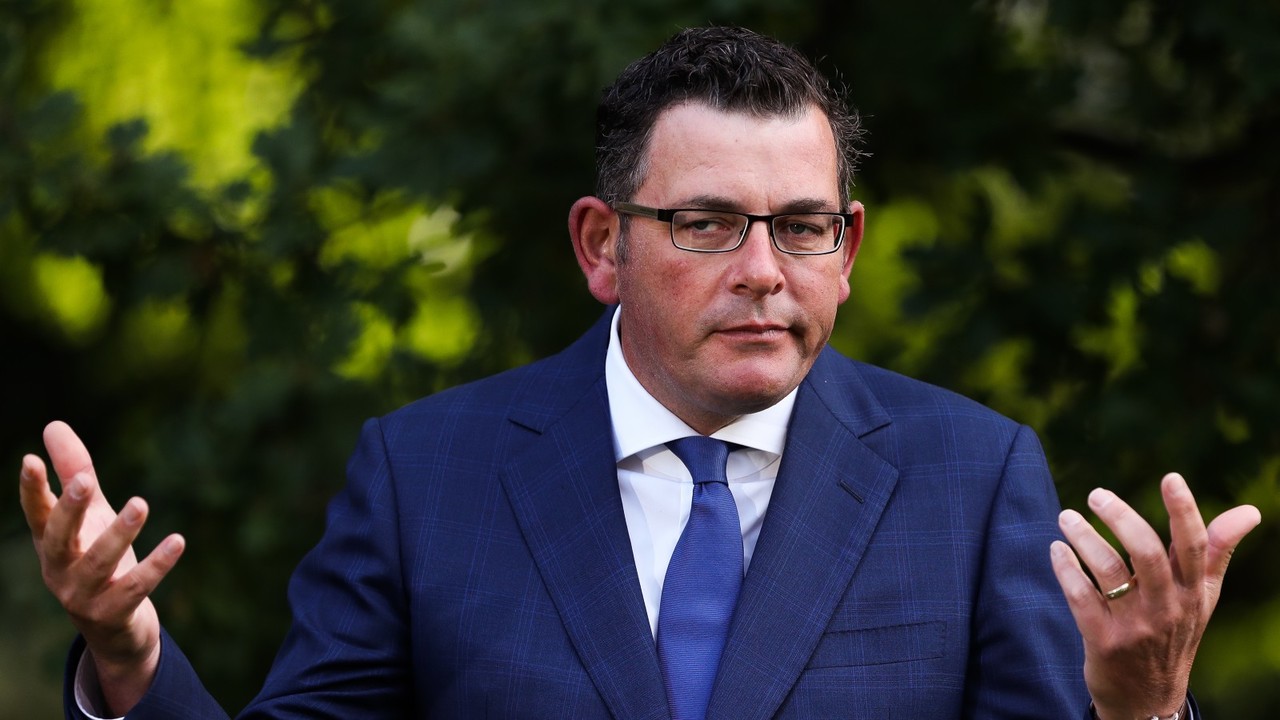
“If I was to align many of the criticisms that have been levied, over a long period of time, with what we do now, I’m very confident that we have a system that is worthy of being copied by others, and it is.
“This is not about boasting, it’s just a fact. If it was anything other than one of the best systems - the AMA over in WA were calling it the gold standard - they’re not terms I use - but that’s what they said, if it was anything other than a good system, then I doubt very much that are the first ministers across the country would have agreed to copy it.
“It’s not a point of criticism of anyone else. They can speak to their systems. I’m simply making the point that we will not be getting to 3000, because I don’t believe that 3000 would be safe. That’s my judgment, and I’ll be accountable for that.”
Mr Andrews listed a range of improvements Victoria had made to its hotel quarantine program - following last year’s breaches which led to more than 20,000 infections and 801 deaths - including overhauling airconditioning systems in hotels.
“We’ve ripped out the air conditioning in a number of these places and put new systems in, we’ve changed the way air flows, we rip up the carpet in all the common areas ... so hallways for instance, and lino is put down so we can clean shared spaces where there could be a transmission to industrial standards,” he said.
“No one else does this. There’s 50 other points where we do things differently, sometimes significantly differently, sometimes it’s a smaller thing, but when you add all that together, it’s a very risk averse model.
“It needs to be, and I can’t rule out further changes.”
Mr Andrews foreshadowed testing people 16 days after they enter quarantine as one possible further change.
READ MORE: China gets its chance as Pacific forum fractures
Rachel Baxendale 12.40pm: ‘Higher standards’: Andrews’ reason for lower hotel caps
Victorian Premier Daniel Andrews has declared his state will never take as many overseas return travellers as NSW, because his state has “higher standards” in hotel quarantine than its northern neighbour.
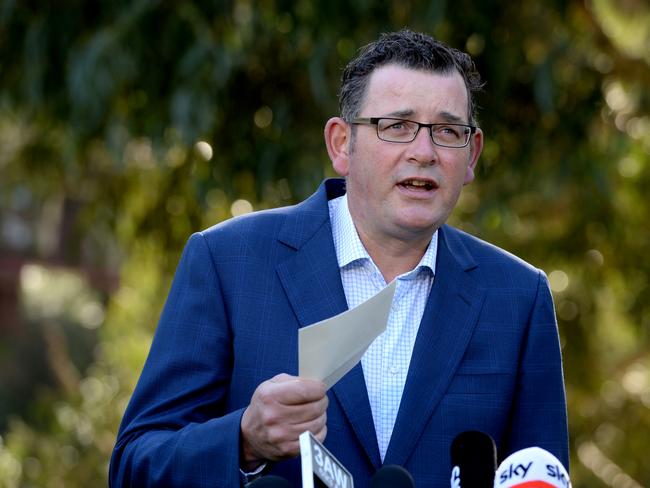
Mr Andrews made the comments despite three people contracting coronavirus in three separate Victorian quarantine hotels in the past week, and ahead of a planned increase in states’ weekly overseas arrivals caps which will see Victoria’s cap move from 1120 people to 1310, while NSW and Queensland will each double theirs to 3010 and 1000 respectively.
SA will increase their cap from 490 to 530, while WA’s will stay steady at 512.
The Victorian Premier said new highly infectious strains of coronavirus presented state authorities with a “very significant challenge”, but dismissed commentary that quarantining needs to be moved out of hotels to army or mining accommodation further from major cities.
“I see some commentary today about ‘hotels aren’t the go and all that’. Well that’s not the decision of national cabinet,” Mr Andrews said.
“There’s no federal facilities that are going to pop up anytime soon, so we have to make the best of what we have.”
Mr Andrews also made reference to the Morrison government’s refusal to provide Victoria with Australian Defence Force personnel to fulfil roles as floor monitors in hotel quarantine — a role that is fulfilled by privately contracted security guards in other states.
“Whilst we’re grateful for ADF support, it’s relatively modest in the scheme of things, and we are a bit disappointed that we didn’t get the additional roles and functions that we asked for, but we just push forward, and I can foreshadow for you that we’re not going to anywhere near the capacity that New South Wales has, or other states have, and I don’t make any apology for that,” Mr Andrews said.
“We will have less capacity because we have a different model and I lead higher standards.
“We are moving to test staff members, every staff member, not just when they work, but on their days off as well.”
READ MORE: Andrews backing McGuire at odds with Labor colleagues
Caroline Overington 11.42am: Crew stranded off China relieved after a year
Eighteen sailors aboard the beleaguered MV Anastasia, stuck for months with tonnes of Australian coal off the coast of China, are on their way to Japan for a crew change.
They are expected to disembark on 10 February.
The Australian understands the ship’s owner finally gave in to international pressure to have the crew relieved from months of physical and mental torture, instructing the master to leave Chinese waters, after Beijing consistently failed to allow the crew to disembark.
In a statement, the company said they were “left with no other option but to advise the master of Anastasia to make a short hop to Japan after already grave concerns for the safety and wellbeing of the seafarers intensified.” The ship is believed to have left Chinese waters on 4 February.
“MSC prioritised the Japanese option as the quickest and most efficient way to provide the necessary relief for the crew,” the statement said.
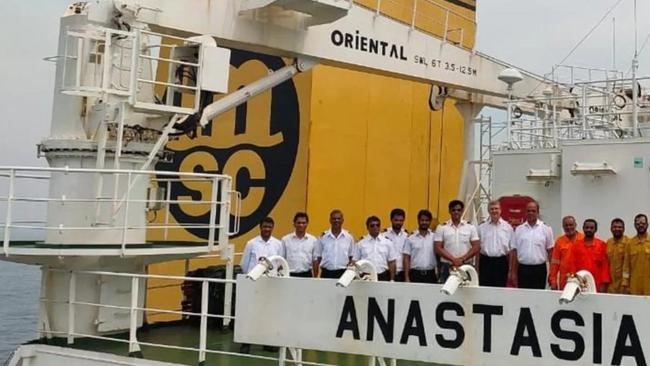
China had been citing Covid concerns but observers believe the crew was caught in a bitter political battle between India, China and Australia.
The MV Anastasia is owned by the Swiss-Italian Mediterranean Shipping Company. But it was chartered to Jiangsu Steamship, a Chinese company. The intended receiver of its coal is E-Commodities Holding, incorporated in the British Virgin Islands and listed on the Hong Kong Stock Exchange. The vessel flies a Panamanian flag.
READ the full story here
Patrick Commins 11.30am: Personal, recreational services lead ongoing recovery
Businesses began the new year in an upbeat mood, with corporate confidence climbing in January despite a Christmas period marred by COVID-19 outbreaks, which triggered temporary lockdowns in Sydney and Brisbane and state border closures.
NAB’s business survey for January showed operating conditions retreated from December’s multi-year highs but remained above average and at a level suggesting an expansion in overall corporate activity, the bank’s chief economist, Alan Oster, said.

“The survey continues to point to an ongoing recovery,” Mr Oster said.
NAB’s business confidence index lifted by five points to an above average 10 points, while conditions retreated from 16 points to seven points. A reading above zero indicates more positive than negative responses, and both confidence and conditions have surpassed pre-COVID levels.
The lift in confidence was led by personal and recreational services, which are playing catch-up to other industries such as retail as restrictions progressively ease.
READ the full story here
Perry Williams 11.11am: Housing market mixed due to stimulus uncertainty
Boral says Australia’s housing market remains mixed due to uncertainty over government stimulus and more people moving out of cities with multi residential housing starts falling 14 per cent nationally in the first half of 2021, hit by a 26 per cent fall in the NSW market.
The construction materials giant sees little immediate pick-up in the Australian market.
“From my perspective I don’t see it rebounding in the near term,” Boral chief executive Zlatko Todorcevski said after releasing its first half results on Tuesday.
“Clearly there’s a stock of multi residential apartments that need to be worked through and we really need to see a rebound in immigration.”
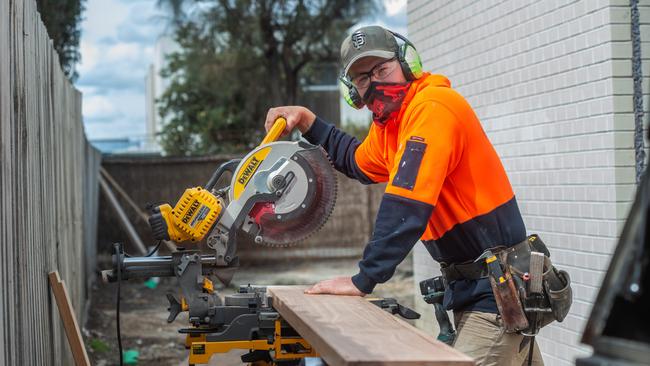
The pandemic-sparked move of people out of cities into rural areas was also a factor with September quarter statistics showing the largest migration levels on record.
“We’re watching pretty closely the amount of migration in Australia out of capital cities,” Mr Todorcevski said.
Detached housing starts were up 10 per cent in the period and Boral said it was difficult to gauge how that market will perform in the second half.
“What we can’t tell at the moment is was that outcome driven by stimulus measures like JobKeeper and HomeBuilder or is there something fundamentally happening in the market,” Mr Todorcevski said.
Boral was last up 0.5 per cent to $5.44.
FOLLOW live ASX updates at Trading Day
Rhiannon Down 11.04am: NSW records 0 local cases for 23rd day
NSW has recorded zero new cases of community transmission for the 23rd day in a row.
Two cases were recorded in returned travellers in hotel quarantine, according to NSW health.
An investigation into how a Wollongong resident who returned from South America tested positive for COVID-19 two days after being released from quarantine.
NSW recorded no new locally acquired cases of #COVID19 in the 24 hours to 8pm last night.
— NSW Health (@NSWHealth) February 9, 2021
Two new cases were acquired overseas, taking the total number of COVID-19 cases in NSW since the beginning of the pandemic to 4,936. pic.twitter.com/EpvjCAsYv0
All of the person’s ten close contacts have since tested negative for the virus.
Will Glasgow 10.54am: Stop interfering, China tells Australia
China’s foreign ministry has told Australia to ‘stop interfering’ and ‘respect judicial sovereignty’ after Australian journalist Cheng Lei was formally arrested by Chinese authorities after six months of detention on suspicion of sharing state secrets overseas.
The former CGTN television network anchor has been denied access to her lawyer since being taken from her Beijing apartment on August 13, sources familiar with the matter said.
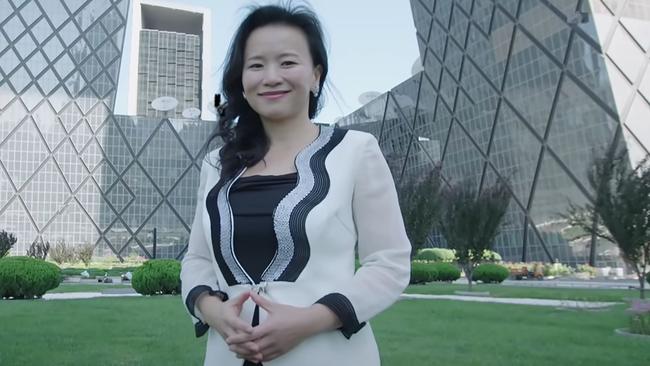
Chinese Foreign Ministry spokesman Wang Wenbin said: “China’s judicial authorities have been dealing with cases independently and the rights of the person involved are fully protected.
“We hope the Australian side will respect China’s judicial sovereignty and stop interfering in China’s handling of cases in accordance with law in any form,” the spokesman said on Monday evening in Beijing.
READ the full story here
Robert Gottliebsen 10.32am: Rising tensions plague retirees
Many sectors of the Australian retirement community are now enjoying the prosperity that comes from higher share and property markets.
But two groups are encountering new levels of tension. The first are those that own a dwelling but have most of their money in the bank. Their wealth is rising but they are becoming very income-poor.
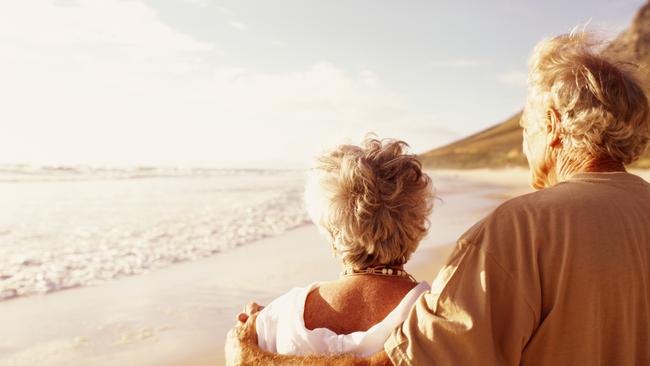
The second agitated group are holders of large superannuation balances who are suddenly being declared by young people as “spongers on the system” and “rent-seekers”.
I have encouraging news for both groups.
READ Robert Gottliebsen’s full commentary here
Rhiannon Down 10.23am: Plibersek has confidence in AstraZeneca rollout
Tanya Plibersek says she is confident about the AstraZeneca vaccine rollout, despite reports South Africa has halted its roll out due to efficacy concerns.
The Labor MP said she was concerned about the rollout which was scheduled to commence this month.
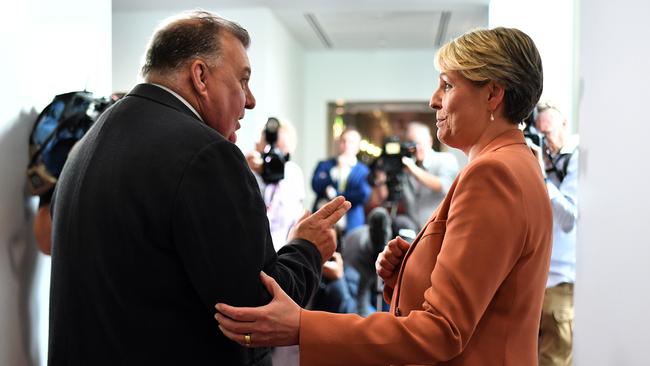
“I will be taking any advice from our health professionals,” she said.
“I would say that the state governments, Liberal and Labor, have done a fantastic job up till now.
“Some of the things the federal government hasn’t been responsible for hasn’t been great — the aged care, the tracing app and getting Australians from overseas and this vaccine rollout is too important to stuff up. So they do have to be very careful.‘’
“The Prime Minister said there would be 4 million people vaccinated by the end of March, we are a long way from that. I am very much hoping that they get it right because it’s critical to our recovery.”
Ms Plibersek said a swift rollout was needed and “regular vaccinations” would likely be needed to control the virus.
“The longer we wait, the less likely it is we get back to normal health- wise and economy-wise,” she said.
READ MORE: Labor must connect with ‘anger in the suburbs’
Rhiannon Down 9.58am: UK patients who survived ventilators experience PTSD
A third of COVID patients who survived ventilation in hospital have experienced PTSD, according to UK researchers.
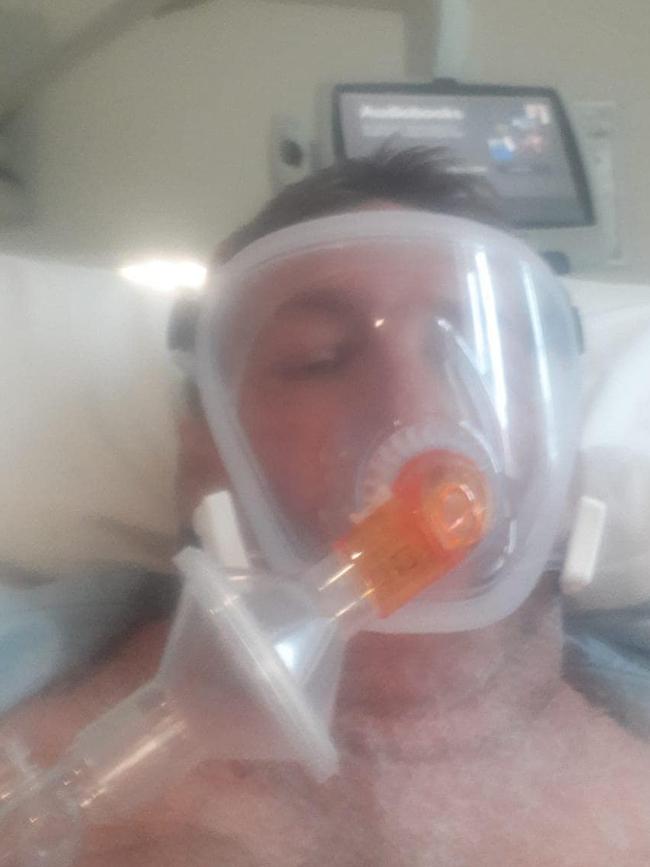
The study showed some patients who recovered at home also had some of the symptoms which include intrusive thoughts or imagery, waves of strong feelings, being easily startled, trying to “erase” memories and avoiding talking about what happened.
One in ten patients who experienced breathing issues due to the disease but did not need medical help have also been impacted by trauma.
The research, which has huge implications for the mental health impact of the pandemic, was published in BJPsych Open from the Royal College of Psychiatrists and was based on 13,049 people in the UK who experienced coronavirus.
READ MORE: Covid’s long-term toll alarming doctors
Rachel Baxendale 9.48am: Infected hotel worker has UK strain: Andrews
The latest Victorian hotel quarantine worker to test positive for coronavirus has the more contagious UK strain of the virus, Premier Daniel Andrews has confirmed.
Mr Andrews said the results of genomic testing on the Melbourne Airport Holiday Inn authorised officer in her 50s had been returned on Tuesday morning.
“Further to that particular outbreak, there are eight social primary or close contacts — so family and others that are very, very close to this particular worker,” Mr Andrews said.
“They’re all isolating. They’ve all been tested.”
Mr Andrews said no results had yet been returned for any of the eight.
“We are working through those,” he said.
Mr Andrews said the worker had been found to have 136 workplace close contacts, all of whom are also isolating and getting tested.
“As soon as we’re in a position to update you on those results, we will,” he said.
READ MORE: James Kirby —ividends going from drought to downpour?
Rachel Baxendale 9.43am: Positive case from quarantine transferred to ICU
A Victorian hotel quarantine resident who has tested positive for coronavirus has been transferred to hospital and is in intensive care, Premier Daniel Andrews has confirmed.
It is the first time in weeks that anyone in Victoria has been hospitalised with the virus.
READ MORE: Vax certificates to be ‘fraud-proof’
Natasha Robinson 9.22am: EU guarantee: No blocks on vaccines to Australia
European Union ambassador to Australia Michael Pulch has guaranteed that the EU will not block Australia’s shipments of Pfizer and AstraZeneca vaccine that are being manufactured in Belgium.
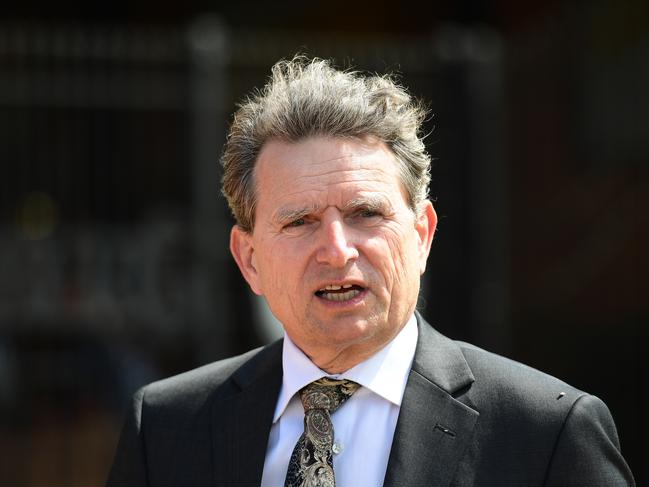
Dr Pulch told the ABC’s RN Breakfast that although Australia had not been granted a specific exemption from laws introduced that require pharmaceutical companies to obtain authorisation to export vaccines, the EU would cooperate to ensure Australia’s deliveries were not blocked.
“These shipments to Australia will arrive on time,” Dr Pulch said. “My colleagues in Brussels have assured the Australian side that they will work with them on an authorisation process.”
The EU introduced the transparency regime because Pfizer and AstraZeneca were not able to fulfil their full orders to European countries.
Australia is set to import 20 million doses of Pfizer vaccine and more than three million doses of AstraZeneca vaccine. The first Pfizer jabs are due to arrive in late February, with AstraZeneca vaccines to follow in early March.
READ MORE: Prime focus now on airborne transfer
Rachel Baxendale 8.46am: Victoria records no new cases amid hotel infections
Victoria has recorded no new coronavirus cases in the 24 hours to Tuesday, despite the discovery of three infections transmitted in three of the state’s quarantine hotels since last Wednesday.
Yesterday there were no new cases reported. 12,816 test results were received. Got symptoms? Get tested, #EveryTestHelps. More later: https://t.co/2vKbgKHFvv#COVID19Vic #COVID19VicData pic.twitter.com/zOXFmSkiJG
— VicGovDH (@VicGovDH) February 8, 2021
There are currently 15 active cases in the state, including two cases in hotel quarantine workers, and 13 in recently returned overseas travellers in hotel quarantine.
The latest figures come after 12,816 tests were processed in the 24 hours to Monday night - only marginally more than the 11,359 tests processed in the preceding 24 hours.
READ MORE: Testing time for Brett Sutton
Rhiannon Down 8.41am: Victorians probe ventilation issues in hotel rooms
Disease experts say air ventilation in hotel quarantine could be the source of two infections in hotel quarantine workers.
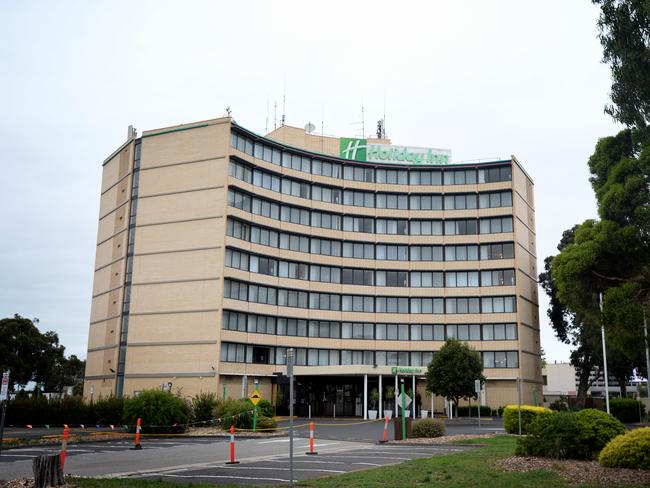
Deakin University chair of epidemiology Catherine Bennett said ventilation in hotel quarantine rooms was “very much on the table” of the Victorian investigation into the breach.
“We certainly had to look at the ventilation as a key part of this,” Professor Bennett told Sunrise.
“Victoria is reviewing that again. That was an important part of the reviewing in Queensland which they just reported on. We do need to understand it.
“Airborne transmission is something we should be thinking about anyway, particularly if we are thinking about people who are turning a positive there and will always have that infectious period before the test comes back.”
READ MORE: Third case threatens increase in arrivals
Will Hamilton 8.23am: How to ride the 2021 rollercoaster
For the past 2½ years, volatility — the variance of returns in a market — has been a constant.
Now, higher volatility is seen by many as the new normal. I believe it’s here to stay, with events of the past few years tending to support this.
Let’s look back at the rollercoaster market performance of recent times.
● 2018: very strong third-quarter market returns, followed by a fourth-quarter correction of nearly 20 per cent.
● 2019: very strong for equity markets.
● 2020: onset of COVID-19 caused an extremely weak first quarter, an extremely strong second quarter and a strong fourth quarter.
How should investors respond to ongoing volatility?
To survive it and manage through, I have had to position portfolios for adaptability. That has meant many tactical adjustments to asset allocation over the last 12 months. These have generally been moderate, with the exception of an underweight position in fixed income and cash.
I have also largely been “style-neutral” with respect to our equity allocations. Or to put that another way, rather than getting caught up in the growth or value argument I favour a growth bias with quality always a priority.
Indeed, those investors who do swing between growth and value will only exacerbate the volatility they face in their own investing.
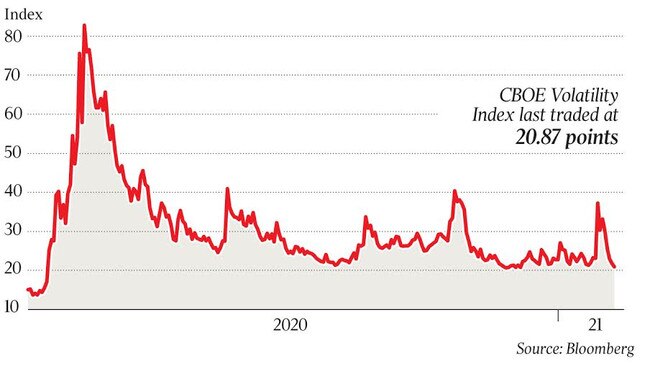
Though I see market volatility as being with us for a while, it has dominated so far in 2021. The headlines have focused on the devastating COVID-19 story with high northern hemisphere infection rates and deaths in Europe and the US. Nonetheless, markets have moved forward positively. The reason is the rollout of the vaccine. Markets are looking forward with confidence.
So are we in the late stages of a bubble?
READ the full story here to find out
Agencies 8.04am: First sitting US congressman dies of Covid
A Republican congressman from Texas who was being treated for Covid-19 has died, his office said Monday, the first sitting member to lose his life after battling the coronavirus.
House of Representatives politician Ron Wright, 67, who had also suffered from cancer in recent years, died on Sunday in a Dallas hospital, where he and his wife were taken after catching the virus.
His death comes after House member-elect Luke Letlow lost his life on December 29 to the disease, just days before the 41-year-old Republican was to be sworn in.
Wright announced on January 21 that he had tested positive for the Covid-19 but was “experiencing minor symptoms.” “I feel okay and will continue working for the people of the 6th District from home this week,” his statement said at the time.
But his condition took a turn for the worse and for the past two weeks, he and his wife Susan were hospitalised for treatment. He died with his wife at his side, according to a statement from his office.
The US recorded 86,928 cases yesterday, according to Johns Hopkins University.
The country has battled the world’s largest outbreak of the coronavirus with 463,000 deaths.
— AFP
READ MORE: Biden’s no Obama, he’s up for the fight
Rhiannon Down 7.47am: NT puts three Melbourne suburbs on quarantine list
Travellers who have visited Melbourne suburbs Maidstone, Sunshine or Taylors Lakes in the city’s west, will be required to quarantine on arrival in the NT.
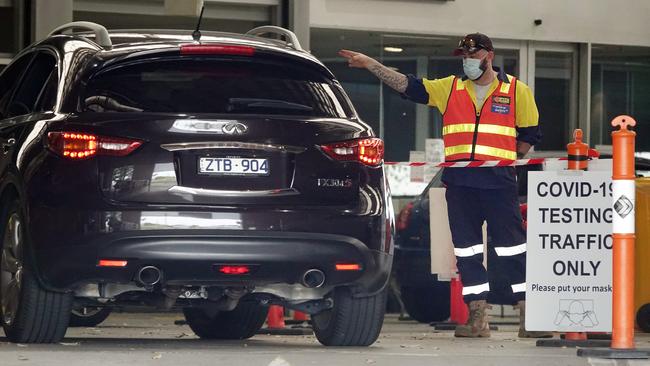
The territory government introduced mandatory quarantine for travellers who have visited the hotspots after a second Melbourne hotel quarantine worker tested positive for COVID-19.
A number of venues, including a cake shop and bottle shop, in the city’s west were placed on high alert after they were listed as possible exposure sites the worker visited.
“If you are intending to travel to the Northern Territory from an identified active coronavirus hotspot you are advised to cancel your plans,” the government said in a statement.
“Likewise if you are a Territorian intending to travel to an active hotspot you are advised to cancel your plans.”
READ MORE: Hotel link to positive probed
Rhiannon Down 7.22am: We need five or six vaccines: Shorten
Bill Shorten has blasted the government for only making deals with three vaccine companies.
“Based on what the medical experts are saying, the AstraZeneca vaccine should be part of the answer,” the Labor MP told Today, as debate around the vaccine’s efficacy against the South African variant continued to rage.
“It’s a shame we didn’t tie up contracts with five or six of the vaccines rather than just three.
“But let’s get it right. I can see that we want to make sure the rollout happens properly. I think Australians just want to go back to normal. But we can’t go back to normal until we get the vaccine.”
The former opposition leader said he was concerned about sectors such as the tourism industry that would be unable to return to normal until a vaccine is widely available, and called for government assistance to continue until then.
“I worry about all the people still doing it hard in the travel industry and live events, so until the vaccine is sorted I think we need to keep some JobKeeper programs in to help people,’’ he said.
READ MORE: How vaccine research will help fight cancer
Rhiannon Down 7.17am: Kelly lashes media for labelling him an anti vaxxer
Craig Kelly has hit out at the media for labelling him an “anti vaxxer” on a late night Sky News appearance.
“The media has launched this sort of tirade on me accusing me of spreading misinformation but every time I ask them please tell me what I have said, define what I’ve said that is misinformation tell me why it’s wrong and show me what evidence that you have against me and they simply don’t do it,” he said on Alan Jones’ program.
The Hughes Liberal MP who has publicly supported the use of hydroxychloroquine and ivermectin as cures for COVID-19, both treatment’s that have not been supported by Australian health authorities.
Mr Kelly got into a row with Tanya Plibersek in the halls of parliament last week over his controversial posts.
“I have been labelled this terrible anti vaxxer,’’ he said. “I’ve had flu shots through the years, and publicised myself getting these flu shots. My whole argument has been we should make these drugs available to Australians. At the moment they are being denied.
“I’m talking about more medical treatment not less.”
READ MORE: Psychedelic drug memo sparks uproar
Agencies 6.50am: Don’t dismiss AstraZeneca vaccine: WHO
The World Health Organisation and its Covax partners have cautioned against dismissing AstraZeneca’s Covid vaccine after several setbacks, insisting it remained an important, lifesaving tool.
The AstraZeneca vaccine is currently a vital part of Covax, which was set up to procure Covid-19 vaccines and ensure their equitable distribution around the world.
It accounts for almost all of the 337.2 million vaccine doses Covax is preparing to begin shipping to some 145 countries during the first half of the year, once it receives WHO authorisation, which is expected next week.
“It is vastly too early to be dismissing this vaccine,” said Richard Hatchett, who heads the Coalition for Epidemic Preparedness Innovations (CEPI), which co-leads the Covax vaccine facility with the WHO and Gavi.
“It is absolutely crucial to use the tools that we have as effectively as we possibly can,” he said, speaking at the WHO’s regular bi-weekly press briefing on the coronavirus pandemic.
Regulatory authorities in several European nations have refused to authorise the vaccine for use among the over-65s, due to a lack of data proving its efficacy among older people.
And South Africa says it will suspend the start of its COVID-19 vaccinations with the AstraZeneca jab after a study showed it failed to prevent mild and moderate cases of the highly infectious virus variant that has appeared in the country.
AFP
READ MORE: Minister stands by vaccine strategy
Rhiannon Down 6.45am: AMA: concerns over airborne transmission in hotel quarantine
Concerns are growing over possible airborne transmission in hotel quarantine after three infections were linked to the program this week.
Two workers in Victoria’s hotel quarantine program have tested positive to the virus in the past week, as NSW authorities discovered another case in a returned traveller who was recently released after two weeks in quarantine.
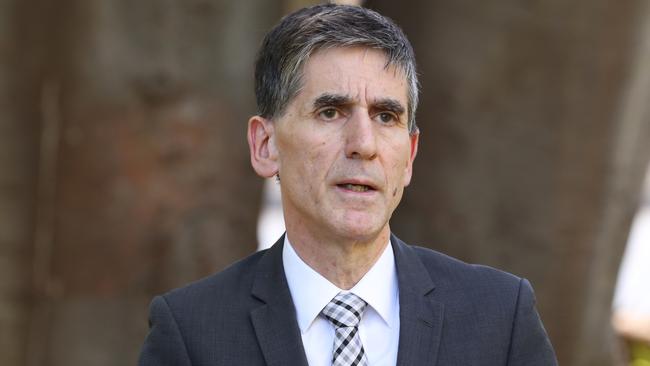
The Australian Medical Association’s Dr Tony Barton said a number of suspected leaks from hotel quarantine raised concerns about its effectiveness.
“We know that the quarantine system was never going to be 100 per cent foolproof but clearly three events over the last week or so have drawn attention to what is currently in play,” he said on Today.
“We know that the questions now raised around whether there is a role through airborne transmission, we know the virus is much more transmissible, but the counterbalance is, each time it’s gotten out, there have been no cases in the community, certainly so far as the previous event late last week and we’ve got to wait and see on this one.”
READ MORE: Social distancing slays the giant dragon
Agencies 6.30am: UK variant ‘set to be dominant in US by March’
The UK coronavirus variant is rapidly spreading in the United States, threatening to bring a surge of new cases as its prevalence doubles roughly every 10 days, according to a new study.
The paper, posted online on Sunday, offers the most comprehensive look at the rise of B.1.1.7 in the country hit hardest by the pandemic.
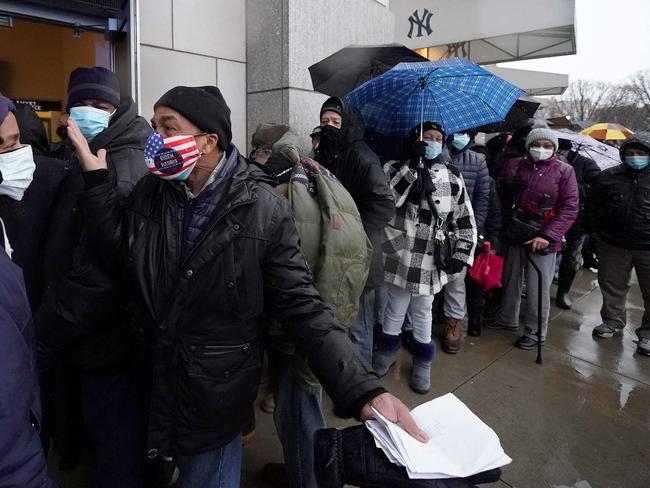
A team of scientists led by researchers at The Scripps Research Institute analysed half a million test samples collected across the country since last summer.
Rather than individually sequence all of them, they were able to identify a particular anomaly that was a “reliable proxy” for B.1.1.7.
They also analysed the full genetic sequence, a more time-consuming process, for 212 samples.
They found the variant was introduced at multiple points into the US in November 2020, and while currently low in overall frequency, it is set to become the dominant form of the virus by March.
The team added that transmission rate was at least 35-45 per cent higher than more common variants, and its prevalence is doubling every week and a half.
READ MORE: Crossbench lobbied to block lending bill
Eli Greenblat 5.45am: Nick Scali backflips on $3.6m JobKeeper
Furniture retailer Nick Scali has done an about-face on keeping $3.6m in JobKeeper and wage subsidies from the government.
The chain drew heavy criticism for retaining the money after the it posted a 90 per cent lift first-half profit and almost doubled its interim dividend, and has decided to return the funds.
Chief executive Anthony Scali told The Australian on Monday night the board believed the JobKeeper funds should have been returned.
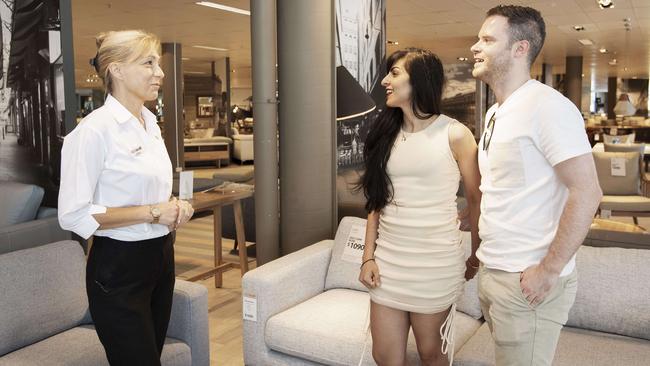
“The pressure came through, the board felt it was probably right to give it back given how well we did. My view is, let’s give it to some of the children’s hospitals, but the decision was to just give it back,” he told The Australian.
In an announcement made to the ASX late on Monday, Nick Scali said the company was “very appreciative of the federal government’s JobKeeper policy which was highly successful and of great assistance at the height of the pandemic – enabling the company to provide security of employment during a particularly uncertain time.
“Further, the JobKeeper scheme enabled the company to continue to pay employees throughout the state government-mandated closures in Melbourne throughout August, September and October, and continue to pay employees in full during other temporary COVID related store closures in South Australia and Western Australia as recently as last week, despite the completion of the subsidy program in September 2020.”
READ the full story
Patrick Commins 5.30am: Hardship scheme a $36bn hit to super
Three and a half million Australians withdrew $36.4bn from their super over the eight-month life of the government’s COVID early release scheme, APRA data shows, nearly $10bn more than the Morrison government had initially expected.
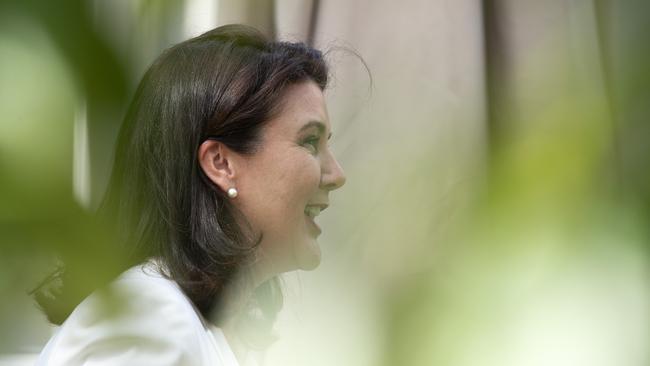
The COVID-19 early release of super program, which ended on December 31, was the most controversial of the Morrison government’s major support measures. It allowed eligible workers to pull, with no requirement for evidence, up to $20,000 from their savings in two withdrawals, and was taken up with enthusiasm by households, despite concern from industry that it would leave many with significantly less in retirement.
Andrew Charlton, director of economic advisers AlphaBeta, said it was “incredibly effective stimulus, paid for by individuals”. He argued it had an even bigger impact on household incomes than the JobKeeper program, the majority of which he said had been swallowed up by recipient companies to boost their bottom lines, rather than providing direct support to employees.
Dr Charlton said the early release cash was “spent very, very quickly”, and more than two thirds of it on discretionary items.
“It’s a massive amount of money and has been very, very effective in stimulating the economy,” he said. “The question is whether this was the right way to assist people in hardship.”
READ the full story
Natasha Robinson 5.15am: Hunt stands by vaccine strategy
Australia will not adjust its vaccine strategy despite evidence the AstraZeneca jab is not effective in preventing mild and moderate disease from the South African coronavirus variant, with the federal government confident it will still protect against severe disease.
But some scientists say there is currently not enough data to assess whether that will be the case, with concerns efficacy may also be reduced in the SA variant against severe disease and death.
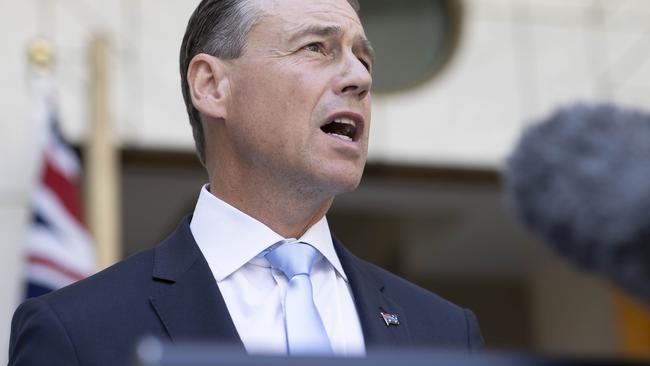
Responding to the early results of a small South African study that showed its jab was ineffective against the SA variant, AstraZeneca said it was confident patients would be protected against severe disease.
“We do believe our vaccine will still protect against severe disease, as neutralising antibody activity is equivalent to other COVID-19 vaccines that have demonstrated activity against more severe disease, particularly when the dosing interval is optimised to eight to 12 weeks,” AstraZeneca said in a statement.
Health Minister Greg Hunt said he had received advice from Chief Medical Officer Paul Kelly as well as the science and Technical Advisory Group, chaired by Health Department secretary Brendan Murphy, that there was “no evidence” the vaccine would be ineffective against severe disease and death from COVID-19 regardless of the variants.
“The advice is very, very clear and that is there’s currently no evidence to indicate a reduction in the effectiveness of either the AstraZeneca or the Pfizer vaccines in preventing severe disease and death,” Mr Hunt said.
READ the full story

